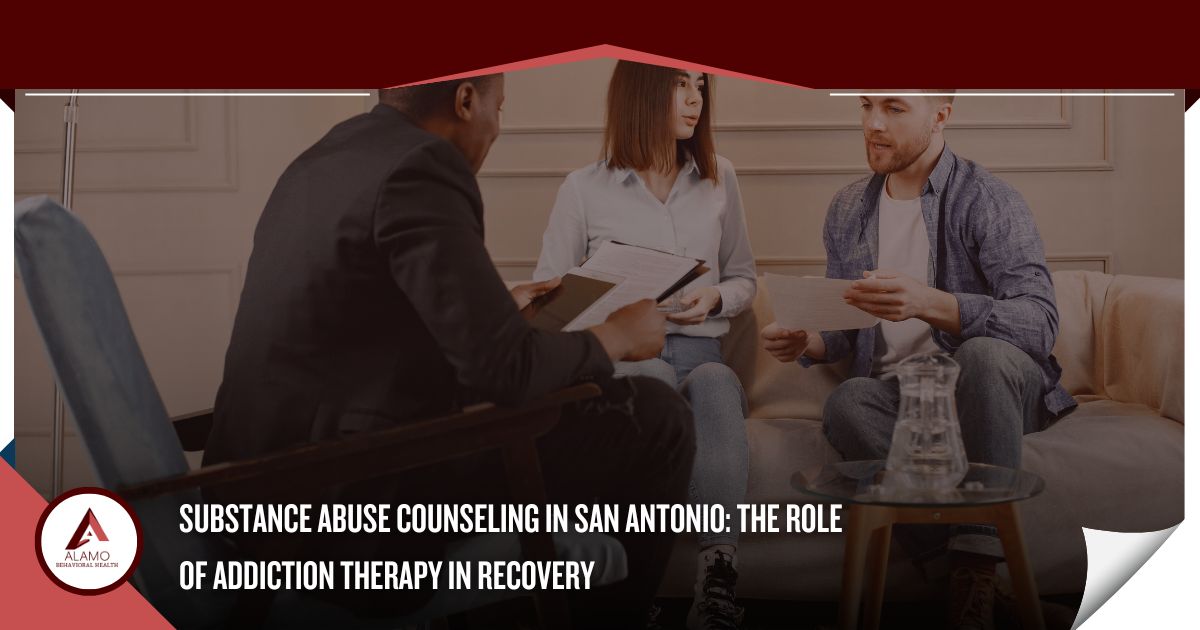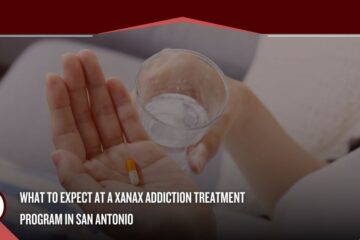 Drug and alcohol addiction is a complex condition with foundations in a person’s genetics, environment, mental and physical health, and more. Because the causes and consequences of substance abuse are so complex and deeply rooted, people with addiction require comprehensive treatment that includes care for their bodies, minds, and behaviors–and not just physical detoxification.
Drug and alcohol addiction is a complex condition with foundations in a person’s genetics, environment, mental and physical health, and more. Because the causes and consequences of substance abuse are so complex and deeply rooted, people with addiction require comprehensive treatment that includes care for their bodies, minds, and behaviors–and not just physical detoxification.
Comprehensive addiction treatment programs consist of several evidence-based and holistic therapies that can help people work through the roots of their addiction and move forward. Substance abuse counseling is a core aspect of holistic treatment that can help people understand their substance abuse, set goals in recovery, and develop skills that support lifelong sobriety.
This article will explore the role of addiction therapy in recovery and where to find substance abuse counseling in San Antonio. Reach out to the skilled practitioners at Alamo Behavioral Health to learn about our treatment programs or to find support at any stage of addiction recovery.
Substance Abuse Counseling: Understanding the Basics
Substance abuse counseling is a core aspect of comprehensive addiction treatment programs. When integrated into a person’s treatment plan, addiction therapy can help people understand the roots of their substance abuse and learn practical skills to avoid relapse.
Substance abuse counseling is typically included during stabilization and treatment in all levels of care, including inpatient, residential, and outpatient rehab programs in San Antonio.
Addiction therapy has several primary goals, including:
- Increasing a person’s self-worth and self-esteem
- Developing new skills to reduce stress, recognize relapse triggers, and manage challenges
- Exploring the roots of trauma and substance abuse
- Building new, healthy routines that support lifelong sobriety
People may engage in individual substance abuse counseling sessions as well as group therapy and education. Participating in addiction therapy during recovery can help people feel less isolated, build confidence, and develop essential coping tools that benefit them in many aspects of life.
What Are Commonly Used Forms of Addiction Therapy in San Antonio?
There are many approaches and methods that can be used in addiction treatment programs.
Here is a brief breakdown of some of the most common techniques used in addiction therapy.
Cognitive behavioral therapy (CBT)
Cognitive behavioral therapy (CBT) aims to help people reduce destructive behaviors that can contribute to substance abuse. During CBT sessions, the therapist and client work together to identify risky situations, triggers, and other challenges that could jeopardize their sobriety. They then work together to increase healthy coping skills and create a plan to use them to avoid relapse.
Dialectical behavior therapy (DBT)
Dialectical behavior therapy (DBT) focuses on helping people accept uncomfortable thoughts, emotions, and behaviors without engaging in destructive behaviors. Therapists help clients learn and practice relaxation techniques, such as breathing exercises, yoga, and mindfulness, to manage stress and reduce the frequency of substance use and self-harm.
The Matrix model
The Matrix model is most commonly used with people in recovery from stimulant abuse and addiction. It utilizes a range of evidence-based therapies, including family therapy, education, and support groups, to reduce the risk of relapse.
Eye movement desensitization and reprocessing (EMDR)
Eye movement desensitization and reprocessing (EMDR) is a type of therapy designed to reduce stress associated with past trauma. A trained practitioner leads clients through a series of exercises and eye movements that can help the brain reprocess traumatic memories.
Chronic stress and trauma are associated with higher rates of substance abuse, and helping people manage trauma and stress can reduce the risk of relapse.
People may also participate in other approaches, such as motivational interviewing (MI), family therapy, contingency management, and others. As people’s needs in recovery change over time, practitioners may adjust the therapeutic approaches they use.
The Role of Addiction Therapy in Recovery
Addiction treatment programs in San Antonio generally occur in progressive stages, beginning with a medically-supported detox program. People in recovery typically begin substance abuse counseling sessions after detox and stabilization are complete.
Before starting treatment, the treatment team assesses a person’s needs and identifies any issues that could complicate detox or treatment. They use the information from this evaluation to create an effective treatment program that will help the person reach their goals.
Substance abuse counseling is one of the most critical aspects of a comprehensive treatment program because it helps people understand the underlying causes of their substance use and learn practical skills to avoid relapse in the future.
Substance abuse counseling can occur in an individual or group setting. Both have benefits during addiction treatment. Individual addiction therapy sessions provide a safe, non-judgmental place for people to process thoughts and emotions and develop new skills, while group therapy sessions encourage better communication, reduce isolation, and can help people gain confidence at any stage of recovery.
Find Substance Abuse Counseling in San Antonio
If you or someone you love live with substance abuse or addiction, you are not alone. Compassionate, holistic treatment can help you at any stage of your recovery. Contact the specialists at Alamo Behavioral Health now to find substance abuse counseling in San Antonio or to explore any of our other treatment programs.




